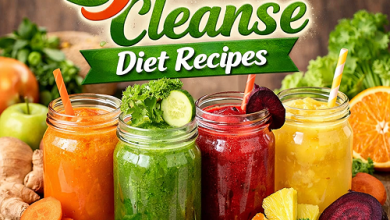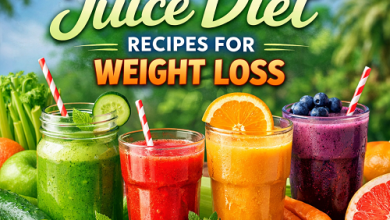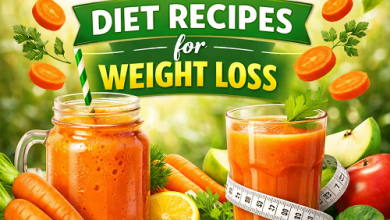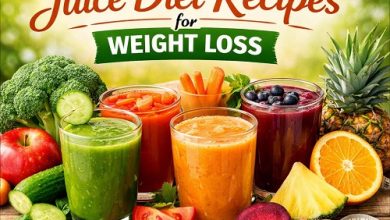The Most Powerful Foods for Bone Strength, According to Health Experts
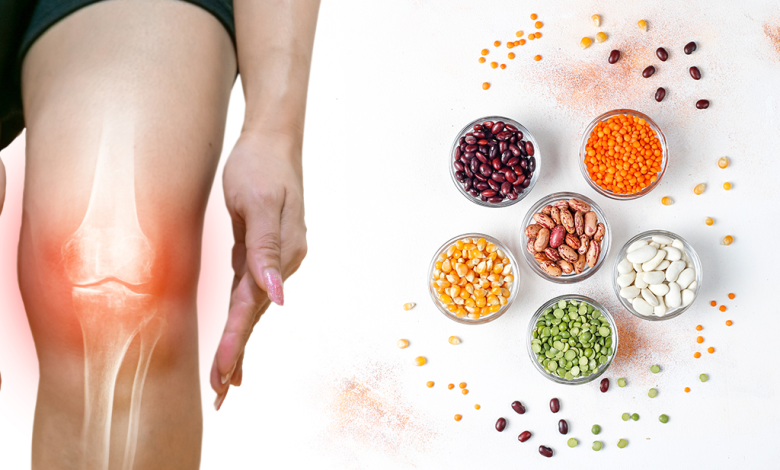
Strong bones are the foundation of a healthy, active life. While many people associate bone health primarily with calcium supplements, experts say that the most powerful defense against bone loss is actually found in your diet. Bone strength declines naturally with age—especially after 40—and even faster in women after menopause due to hormonal changes. But the right nutrient-dense foods can help maintain bone density, support joint function, and reduce the risk of osteoporosis and fractures.
From calcium-packed dairy foods to magnesium-rich nuts, vitamin-K-dense greens, and omega-3 fatty acids, there are dozens of foods backed by research for bone support. Below, we break down the most powerful foods recommended by health experts and how to add them to your daily meals.
Why Bone Health Matters More Than You Think
The human skeleton is not static—it’s constantly breaking down old bone tissue and rebuilding new bone in a process known as remodeling. In youth, bone formation outpaces bone breakdown. After age 30, the reverse happens, increasing the risk of:
- Brittle bones
- Posture issues
- Joint pain
- Osteoporosis
- Hip and spine fractures
- Height loss due to vertebrae compression
By age 65, one in three women and one in five men will suffer an osteoporosis-related fracture. Diet is one of the strongest controllable factors.
Top Foods That Strengthen Bones Naturally
Below are the most powerful foods for bone health, according to nutrition experts and scientific research.
1. Milk and Dairy Products (Rich in Calcium + Vitamin D)
Dairy remains one of the most concentrated natural sources of bioavailable calcium, meaning the body absorbs it efficiently. Calcium is the main mineral in bones, making up about 70% of total bone mass.
Best choices:
- Plain Greek yogurt
- Cottage cheese
- Fortified milk
- Kefir
Why experts recommend it:
Dairy also provides vitamin D, phosphorus, potassium, and protein—all essential for bone regeneration.
How to add it: Add kefir to smoothies, or swap regular yogurt for Greek yogurt for more protein.
2. Fatty Fish (Vitamin D + Omega-3s)
Vitamin D is crucial for calcium absorption, but nearly 42% of adults are deficient. Fatty fish helps bridge the gap.
Best options:
- Salmon
- Sardines
- Mackerel
- Tuna
These fish also supply omega-3 fatty acids, which reduce inflammation linked to joint and bone degeneration.
Tip: Eat fatty fish 2–3 times per week to maintain optimal vitamin D levels.
3. Leafy Green Vegetables (Vitamin K + Magnesium)
Dark leafy greens are bone-protective due to high levels of vitamin K, a nutrient required to bind calcium to bones.
Top greens for bone health:
- Kale
- Spinach
- Collard greens
- Swiss chard
Vitamin K deficiency is directly linked to increased fracture risk, making greens a daily essential.
4. Nuts & Seeds (Magnesium + Healthy Fats)
Bones don’t just need calcium—they need magnesium to convert calcium into active bone-building form. Nuts and seeds are among the best plant sources.
Best for bone health:
| Nut/Seed | Key Nutrient |
| Almonds | Calcium + Magnesium |
| Chia Seeds | Calcium + Omega-3s |
| Pumpkin Seeds | Magnesium |
| Sesame Seeds (Tahini) | Calcium |
How to eat more: Sprinkle chia seeds on smoothies, add almonds to oatmeal, or use tahini as a dressing base.
5. Beans and Legumes (Calcium + Plant Protein)
Beans support bone formation by supplying calcium, potassium, protein, and fiber—while also reducing inflammation.
Top choices:
- Black beans
- White beans
- Lentils
- Chickpeas
Bonus: They help regulate blood sugar, which plays a role in preventing inflammation that affects bone density.
6. Eggs (Vitamin D + Protein)
Eggs contain small but valuable amounts of vitamin D, along with crucial amino acids needed to rebuild bone tissue.
Most vitamin D in eggs is in the yolk—so don’t discard it.
Tip: Pair eggs with spinach or avocado for a bone-supporting breakfast.
7. Whole Grains (Phosphorus + B Vitamins)
Phosphorus makes up nearly 50% of bone mineral content. Whole grains are a healthy source, especially for people who don’t eat dairy.
Best grains:
- Quinoa
- Brown rice
- Oats
- Whole wheat
They also contain minerals that support nerve and muscle function, which help prevent falls and fractures.
8. Broccoli & Cruciferous Vegetables (Calcium + Antioxidants)
Broccoli is a powerhouse food containing calcium, vitamin C, vitamin K, and antioxidants that prevent oxidative damage to bone tissue.
Other good options:
- Cauliflower
- Bok choy
- Brussels sprouts
These veggies also have anti-aging and anti-inflammatory benefits.
9. Almond Milk & Fortified Plant Milks (Calcium for Vegans)
Not all plant milks help bones, but fortified versions can provide more calcium than dairy milk.
Common fortified varieties:
- Almond milk
- Oat milk
- Soy milk
- Coconut milk
Check labels and choose unsweetened varieties with added vitamin D and calcium.
10. Herbs & Spices (Anti-Inflammatory Compounds)
Certain herbs support bone density by lowering inflammation, improving mineral absorption, and supporting hormonal balance.
Top bone-friendly spices:
These don’t replace calcium-rich foods, but they enhance bone metabolism and protect tissue.
How Much Calcium Do You Need Daily?
| Age Group | Recommended Daily Intake |
| Adults 19–50 | 1000 mg/day |
| Women 50+ & Men 70+ | 1200 mg/day |
| Teens | 1300 mg/day |
If you’re not getting enough through food, supplements may help—but whole foods are always preferred due to synergistic nutrients like magnesium, K2, and collagen.
Nutrients That Matter Most for Bone Strength
| Nutrient | Role | Best Sources |
| Calcium | Main structural mineral | Dairy, greens, sesame |
| Vitamin D | Helps absorb calcium | Fish, eggs, sunlight |
| Vitamin K2 | Directs calcium to bones | Fermented foods, greens |
| Magnesium | Activates calcium | Nuts, seeds, legumes |
| Protein | Builds bone tissue | Eggs, beans, yogurt |
| Omega-3s | Reduces inflammation | Salmon, chia seeds |
A bone-healthy diet needs multiple nutrients working together—not just calcium alone.
Healthy Daily Meal Plan for Bone Strength
Here’s how to build a day of bone-strengthening meals:
Breakfast
- Greek yogurt with almonds, chia seeds & berries
- Green tea or fortified soy milk
Lunch
- Kale + chickpea salad with avocado & tahini dressing
- Whole-grain pita on the side
Snack
- Hard-boiled eggs or cottage cheese with fruit
Dinner
- Grilled salmon with quinoa and steamed broccoli
Before Bed
- Warm turmeric milk (cow or almond milk)
This pattern delivers balanced minerals to support bone repair around the clock.
Lifestyle Tips to Boost Bone Density Naturally
Food works best alongside healthy habits:
✔ Do daily weight-bearing exercises (walking, squats, resistance training)
✔ Get 15–20 minutes of sun exposure for vitamin D
✔ Avoid smoking and excessive alcohol
✔ Maintain a healthy body weight (being underweight increases bone loss)
Even with a perfect diet, a sedentary lifestyle weakens bones—movement is key.
Final Thoughts
Bone health starts in the kitchen. By eating nutrient-rich foods like fatty fish, leafy greens, dairy, nuts, and legumes, you provide your body with the minerals and proteins needed to rebuild strong bones and prevent age-related decline. Whether you’re trying to prevent osteoporosis, reduce fracture risk, or simply maintain a strong skeletal foundation, adding these powerful foods to your daily routine can have a lifelong impact.
Strong bones aren’t just about what you take—they’re about what you eat consistently. Start with small changes, and your future self will thank you.

